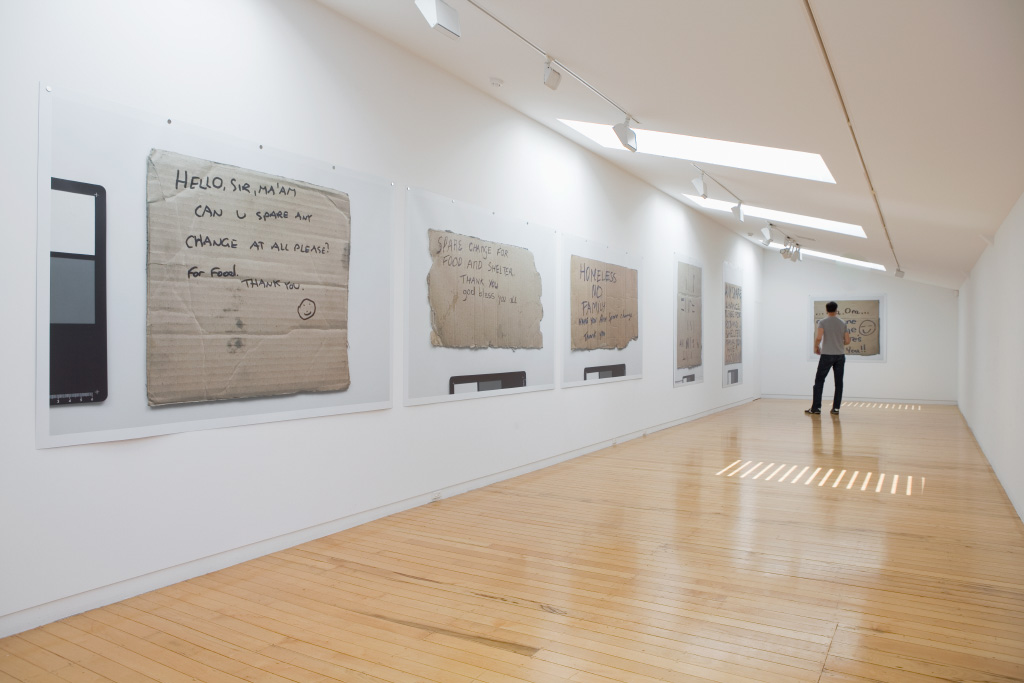Judy Darragh
International Beggar
8 November - 7 December 2013
Judy Darragh emerged as an artist in the 1980s, at the height of a period of conspicuous consumer consumption. She gained a reputation by wittily recycling the cast-offs and junk of retail culture, turning them into colourful sculptural assemblages. In later exhibitions, her themes turned to success and failure, and how they are judged. “We live in a society where everything has to do with success, and failure is rarely discussed.”
It is only natural that in 2013 Darragh should turn her attention to the casualties of consumerism, and comment on the poverty caused by the inequalities in our society. Recycling and re-imaging poignant hand-written placards and scraps of cardboard, this exhibition highlights the plight of the dispossessed, the hungry and the homeless.
Auckland Council recently decided that the best policy for dealing with poverty was to sweep it from sight with the result that begging has now been banned throughout Auckland. In 2013, a new bylaw stated: “Beggars who are deemed intimidating or causing a nuisance will be banished from Auckland’s streets.”
This caused outrage among those most closely concerned with this social problem: “Criminalising people for being poor and jailing people for begging seems like an over-the-top way of dealing with it,” says Diane Robertson of Auckland City Mission.
Darragh’s latest exhibition brings this issue sharply into focus. While the Council was setting up the new anti-begging regime she began collecting an assortment of hand-written appeals from the street.
“ I paid the writer for each sign, re photographed then enlarged each on to PVC billboard vinyl. I was interested in the aesthetic these of grungy ripped card and scrawling text in biro , the appeal for spare change for “food and shelter”. There are similarities between each beggar’s approach. Polite and to the point, they are in fact advertisements and use the tools of advertising to present a concise message to the street traffic. They gently comment on generosity and the use of public space as avenue to talk about poverty.”
In a city and culture devoted to commerce and advertising (there was once even a campaign to use the Auckland Harbour Bridge as a hoarding site) Darragh’s new exhibition is a gently subversive coda to the ubiquity and the sky-high vulgarity of corporate boasting.
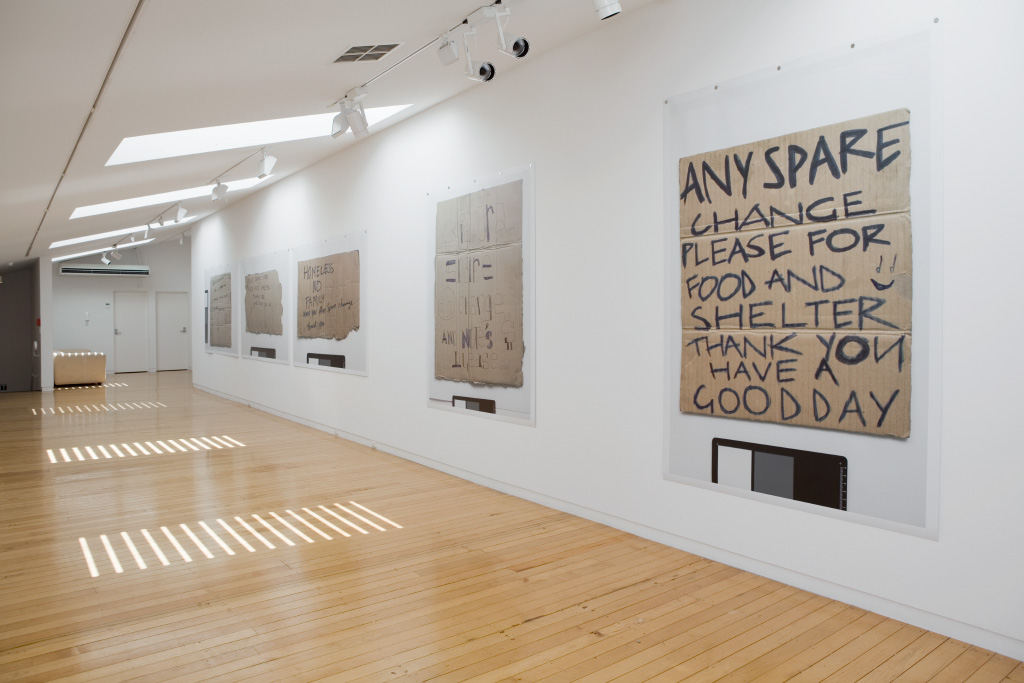
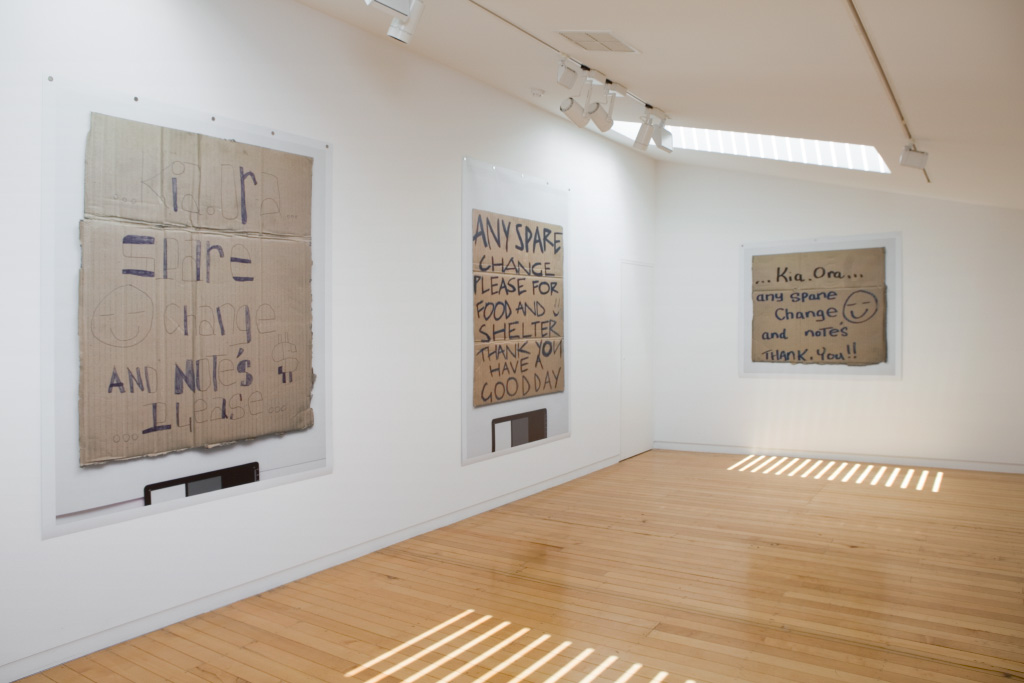
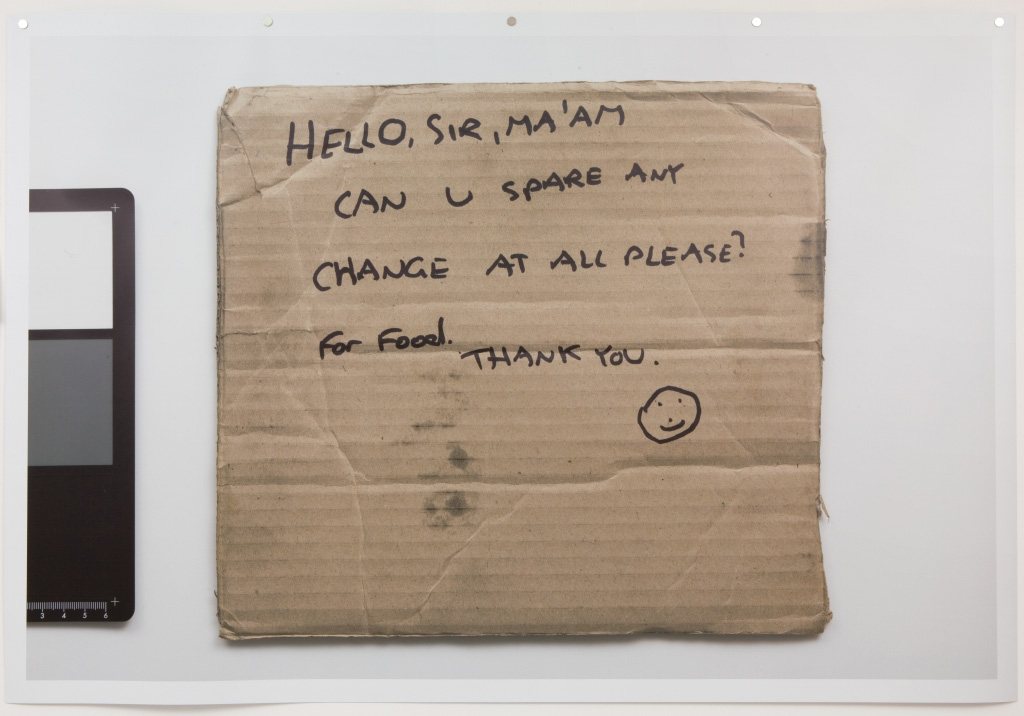
High resolution PVC print
1500 x 2200mm
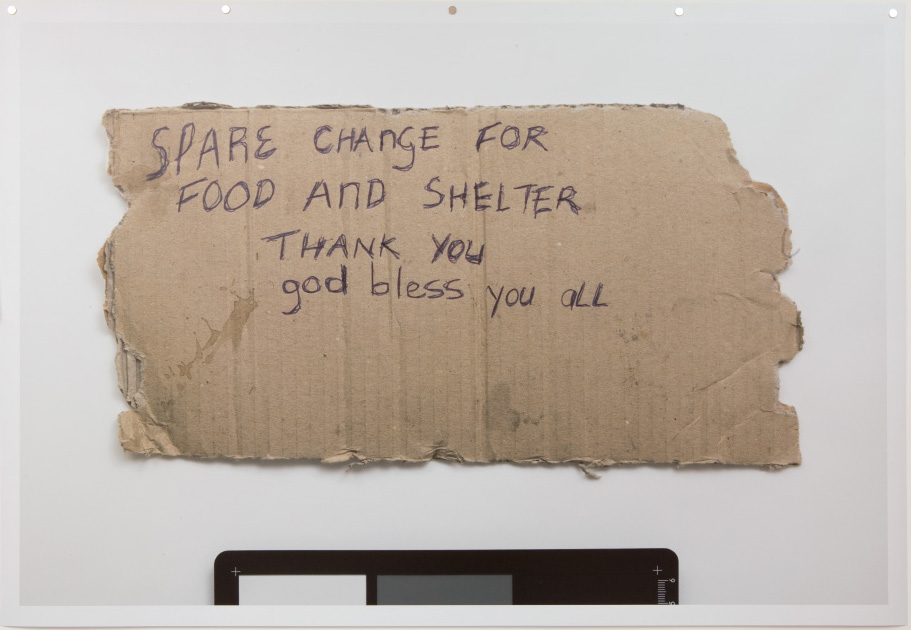
High resolution PVC print
1500 x 2200mm
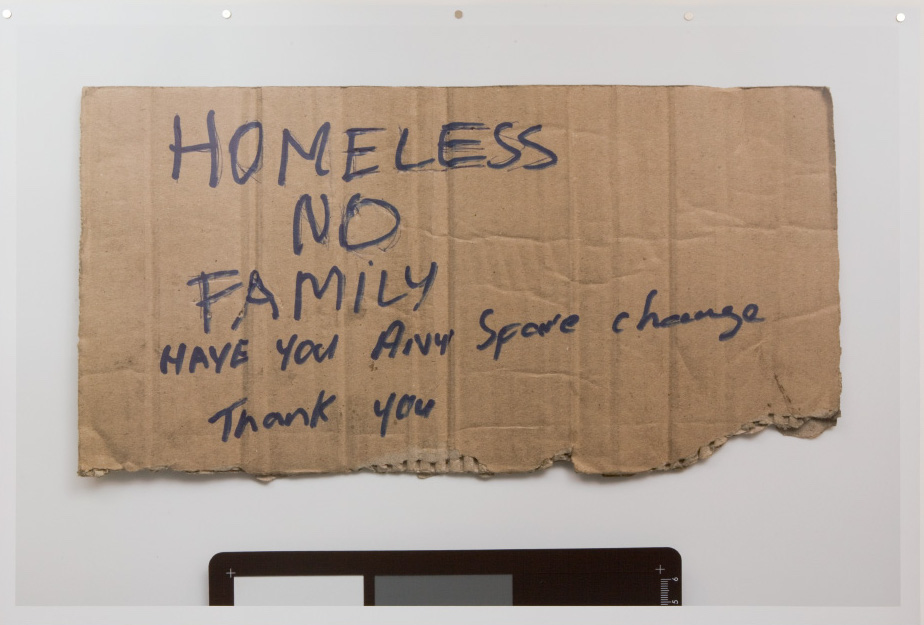
High resolution PVC print
1500 x 2200mm
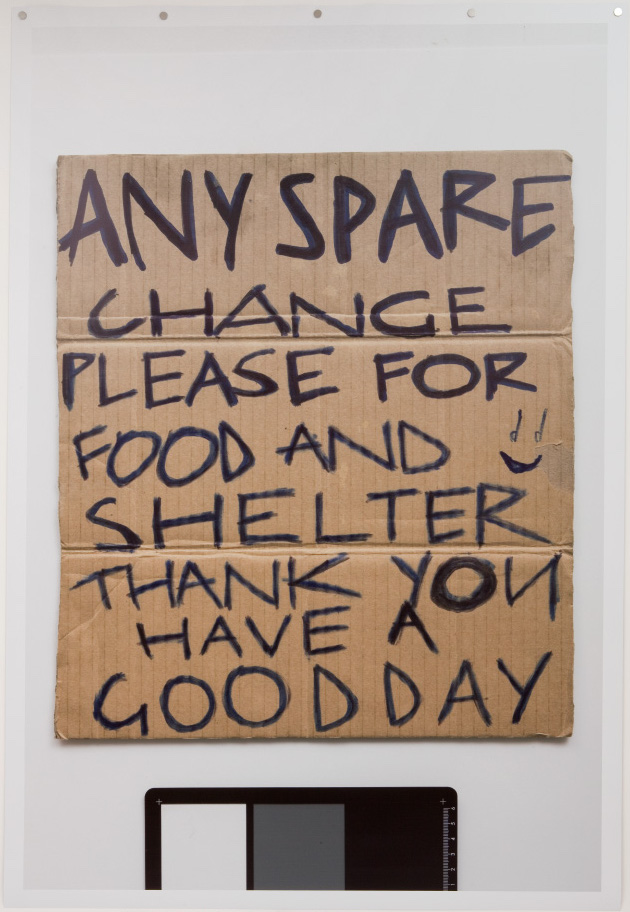
High resolution PVC print
1500 x 2190mm
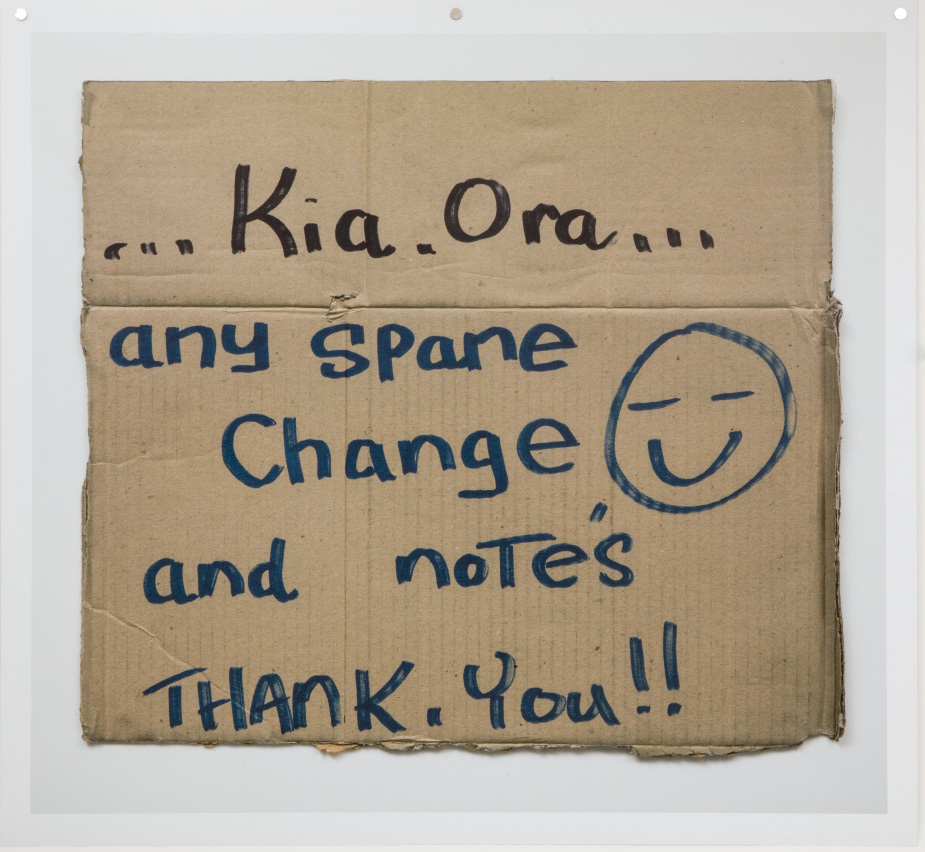
High resolution PVC print
1385 x 1500mm
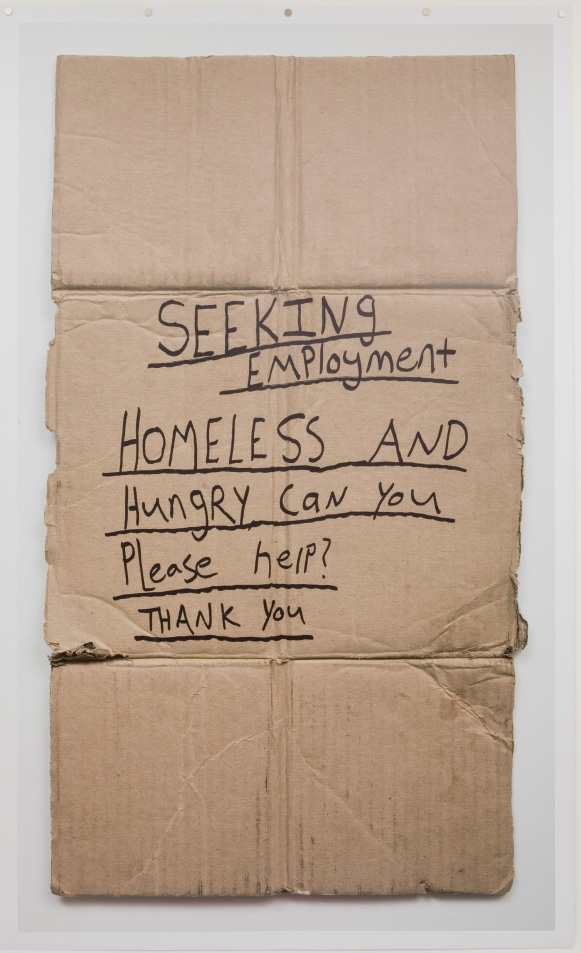
High resolution PVC print
2480 x 1500mm
